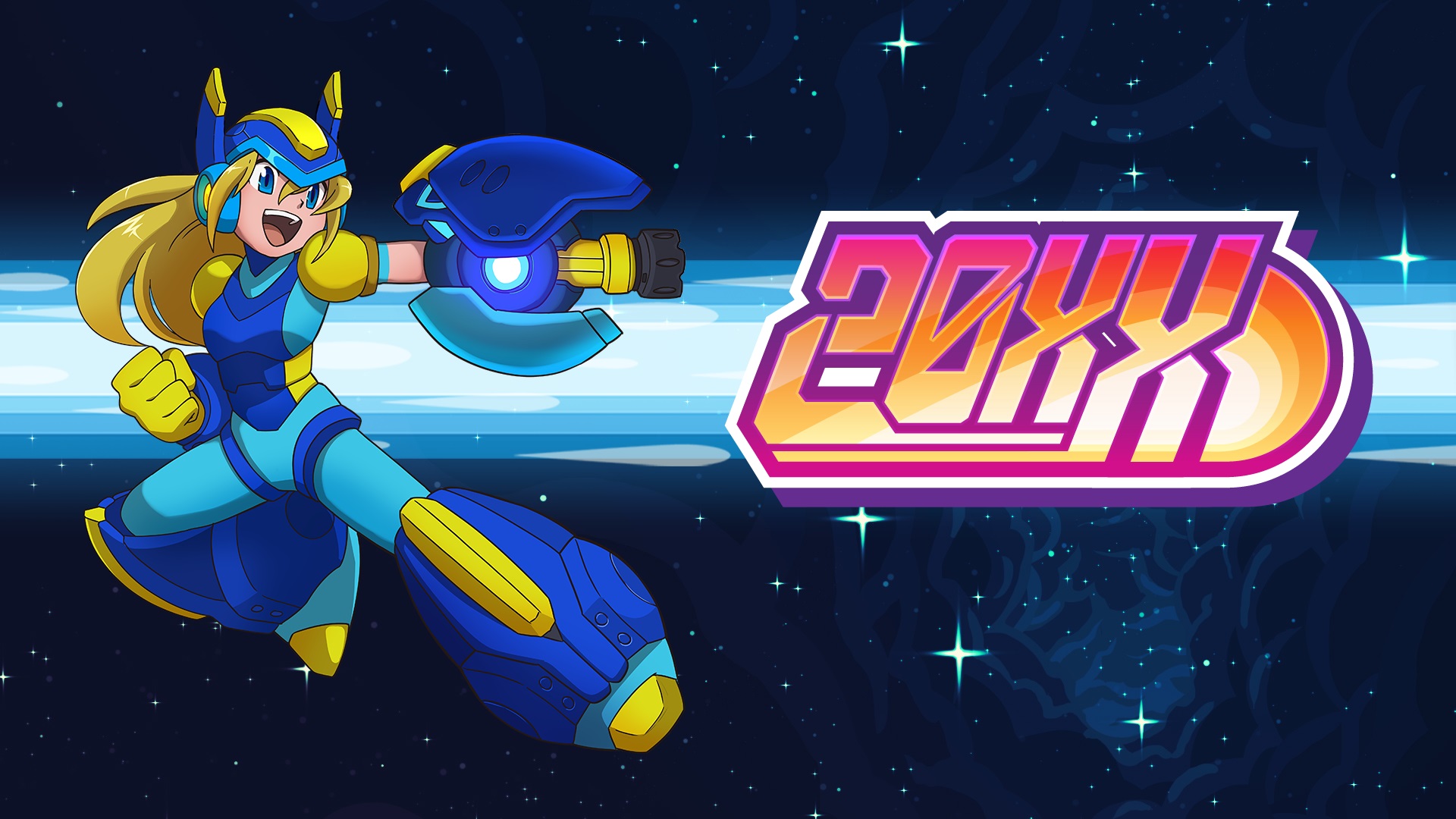
This isn’t Mega Man. You’d be forgiven if you thought it was, but it isn’t. 20XX isn’t so much a homage to the Capcom series, nor is it a spiritual successor. It is more of a younger brother. One that has taken quite a few ques from its older brother. One that wants to be as successful as that venerated older sibling while at the same time, having its own unique sense of self. But mixing roguelike gameplay elements with classic Mega Man? It’s not something most people would think of mixing well together, but somehow, 20XX makes a fairly good attempt at combining them, to straggled results.
20XX
Publisher: Batterystaple Games
Developer: Batterystaple Games
Platform: PC, Nintendo Switch (reviewed), PlayStation 4, Xbox One
Release Date: August 16th, 2017 for PC / July 10th, 2018 for PS4/XB1/Switch
Players: 1-2 Players
Price: $17.99
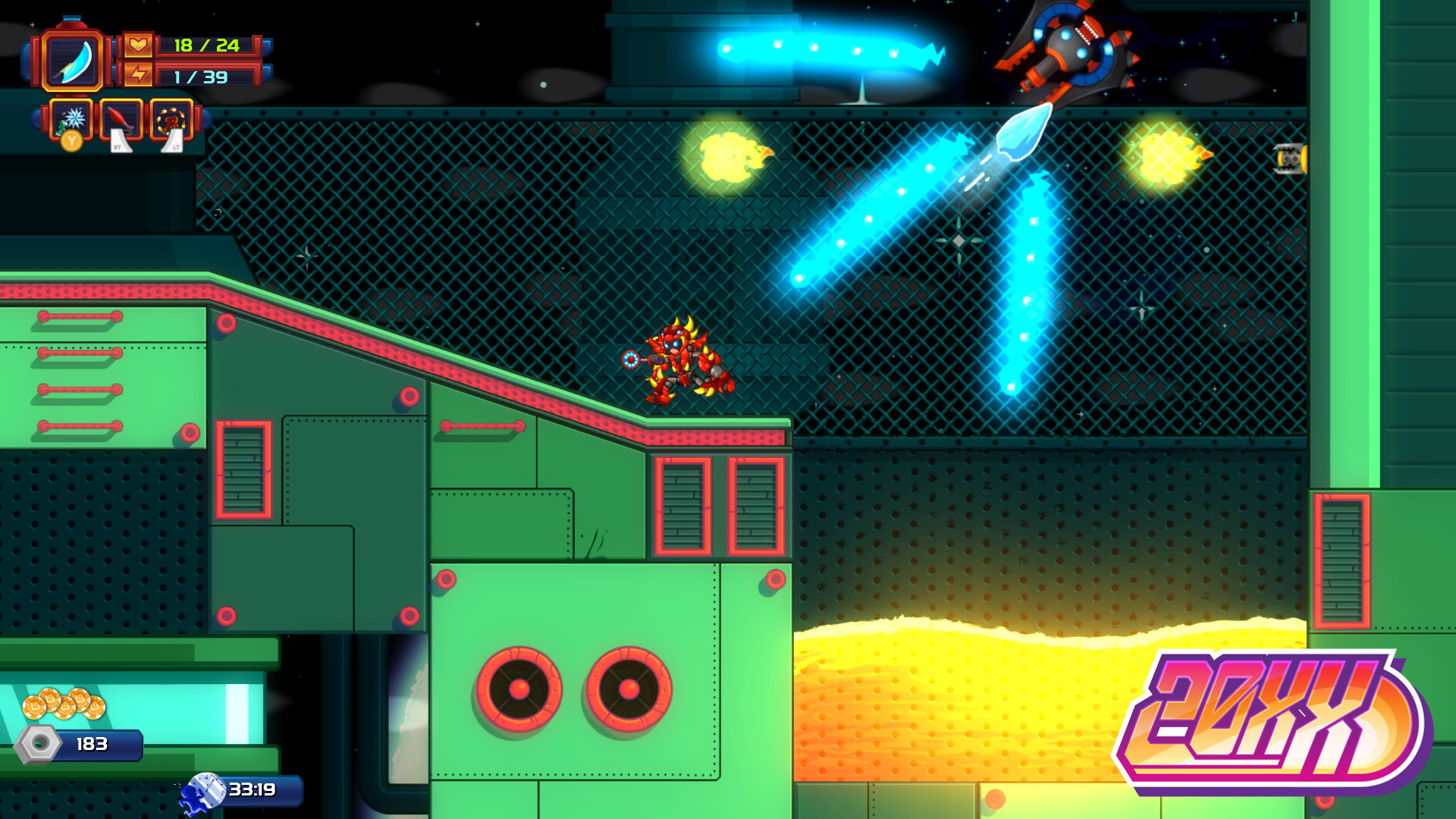
For those that aren’t familiar, a Roguelike is generally a top down or side scrolling dungeon crawler with procedurally generated dungeons with random power ups the player unlocks through completing stages. So on the surface, mixing that type of gameplay with a classic Mega Man backdrop, doesn’t really seem that out of place.
And really, in that regard, 20XX really does shine. The stage design relies a bit too much on platforming, mostly because the stages are almost completely made of different platforms, but 20XX does capture at least the surface enjoyment most people get from playing through a Mega Man game. But that is honestly where most of the good similarities end.
Allow me one moment to rephrase. 20XX mostly copies the Mega Man X series, not classic Mega Man. And I really do mean copy. The main protagonists in 20XX are Nina, the games X clone, and Ace, the Zero clone. Each plays almost exactly like their counterparts in the X series of games. You can charge up your main attacks to deal more damage and you also have dash, which is mostly used as a means to extend your jumps.
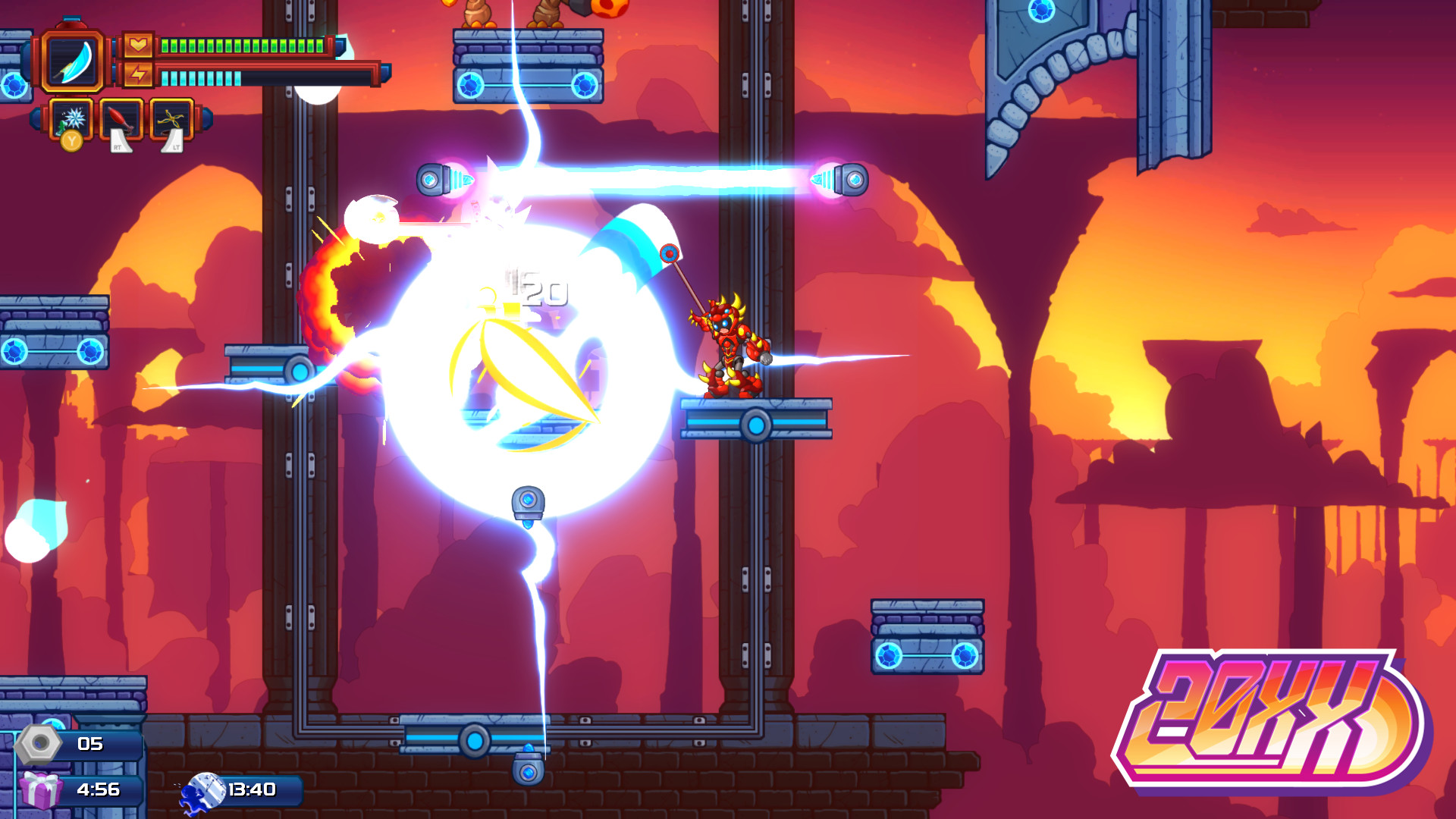
As you progress through the different stages, you will find different power ups which augment your normal attacks and offer up more. Some are unlocked right from the beginning while others are unlocked via purchasing them soul chips, a type of currency dropped from specific enemies and for defeating bosses.
Each stage will have a couple of side paths that the player can traverse, usually ending in either a shop or a chest that will give a power up. But generally speaking, the stages are fairly straight forward. At the end of each stage is this games version of a Robot Master. Defeat them, and you will be rewarded with either a special shot, 10 bolts (another form of currency) or a small power upgrade (usually more health or energy).
Is this starting to sound familiar yet? If it weren’t for the addition of the roguelike elements, 20XX would be an almost carbon copy of the Mega Man X series. That’s not generally a bad thing and 20XX does add its own unique touch to the familiar series, but as a pure Mega Man clone, it falls short in several glaring aspects.
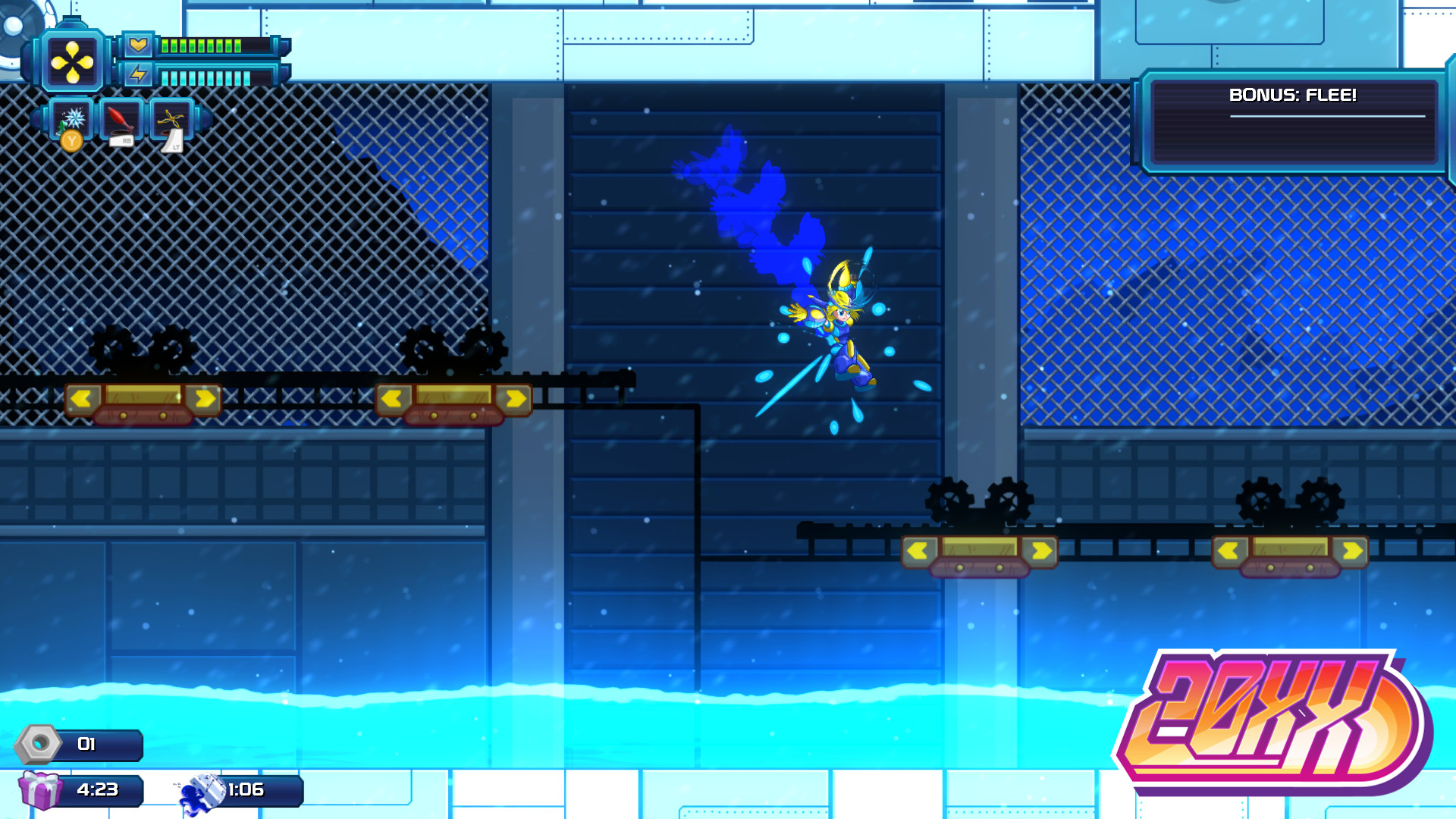
There are a grand total of four different stage types, 1 for every 2 Robot Masters, which greatly hampers the diversity of level design that makes the Mega Man and X series so iconic. And the stages themselves rely far to much on small land masses broken up with either bottomless pits or various damaging environmental hazards.
There is a Wily/Sigma esque stage once all 8 Masters have been defeated and it is of a different variety to the level design beyond the 4 that are presented for the major part of the game.
As far as the Robot Masters go, their designs are fairly unique and interesting enough and, once again, take their ques from the X series, with the vast majority of the Masters resembling some form of robotic animal (there is one that is a plant and one that is just a giant face wall).
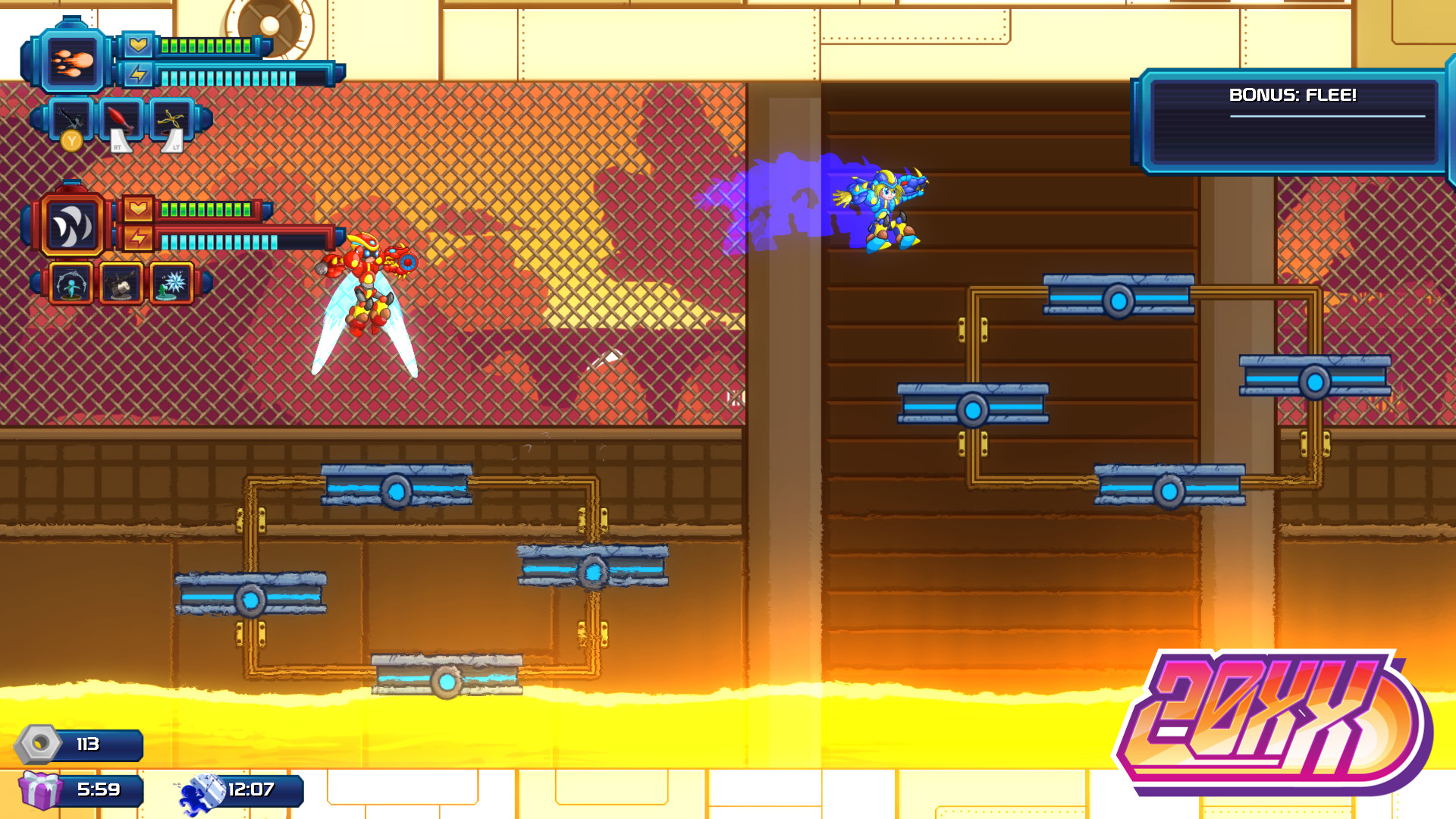
Some of the designs are a little less than inspired, but the fights themselves are generally fairly fun and the attack patterns depend on when in the line up you fight them. While the masters themselves are generally interesting, their attack animations vary from fairly good to lack luster, which is something that plagues the game in general.
In terms of the roguelike elements of the game, they are both the saving grace of the game as well as its major draw back. Unlike in the Mega Man series, what power ups you receive throughout the game are completely random, outside of the different boss weapons and, if you have the soul chips available, up to 3 power ups you can choose from (randomly) before a run begins.
Since there are limited number of stages in the game, and since the stages themselves are procedurally generated, this means that the stages you play through at the end of a run will be greatly more difficult than if you went through the stage at the beginning of the game. Take the ice themed stage for instance.
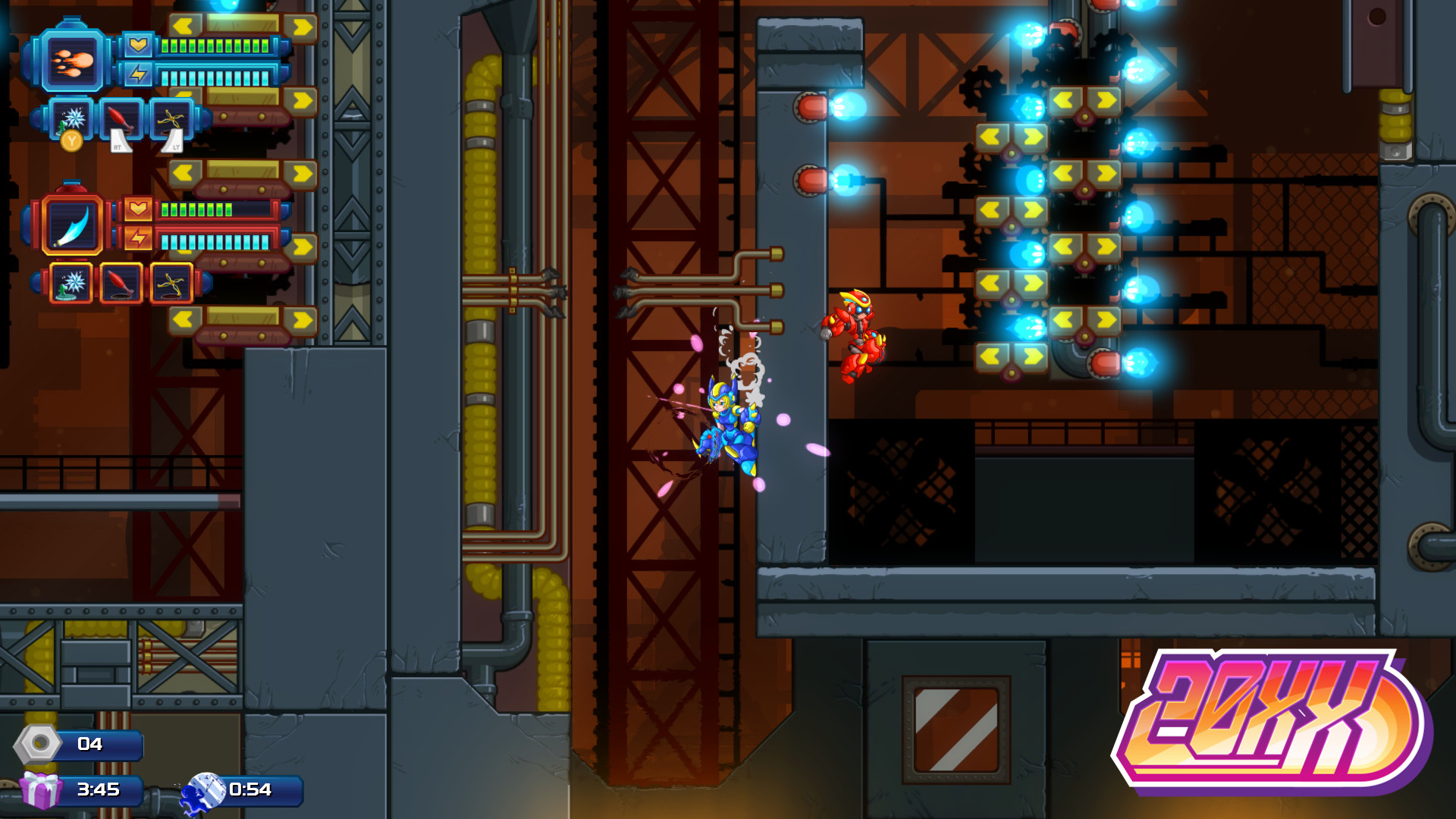
If it is your first stage of a run, there will be far fewer enemies and environmental hazards than if you go through that same stage layout as your 8th stage of the game. The same is true of the Masters in the game as well.
The further in to the game you get, the Masters get progressively more difficult, gaining new attacks and dealing more damage per hit, which does add a bit of strategy to the game. Do you absolutely hate fighting the Dragon Master or playing through the Ice themed stages? You will want to take them on early (if you can), rather than waiting till the last few stages so they are easier.
Do you find the plant Master easy or the factory theme stage to be the easier of the choices available? Tackle those at any time, probably closer to the end of the main series, so that you have a slightly easier time when your health and energy might be on the low end.
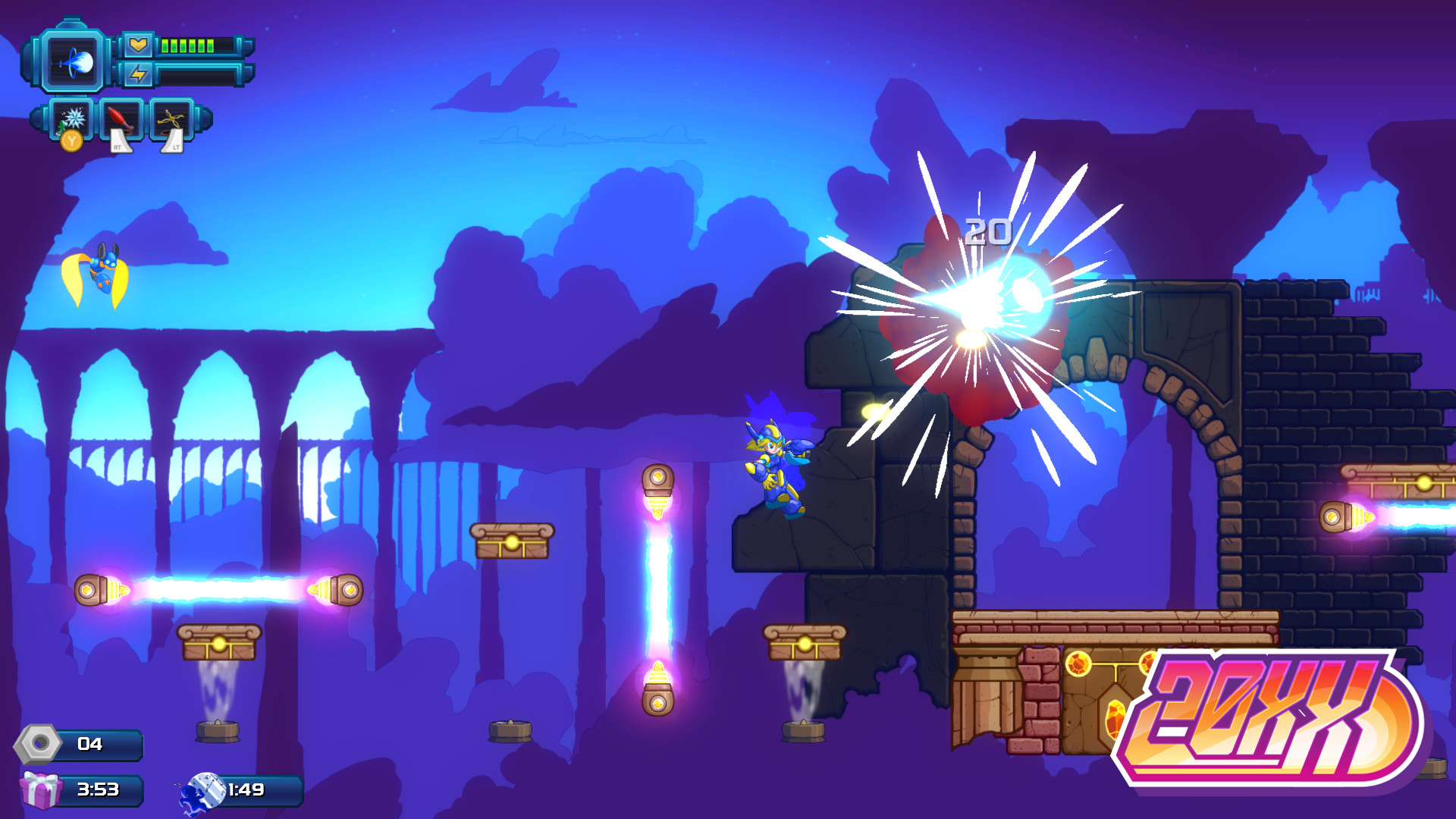
The biggest issues here are mostly the same issues that plague most roguelike games, the utter randomness of each run. Stages chosen at the end of a run might be overrun with environmental dangers that are almost impossible to avoid, leading to massive health lost. Power ups are the same way.
Each of the 2 characters can receive different attack modes depending on the weapon modifiers found during a run as well as different armor upgrades (there is an armor slot for legs, chest, arms and head) and some of those power ups will be more beneficial than others. But since this is a roguelike, you may not see any of those power ups during your run.
I found that the spear attack for Ace is incredibly useful, but I may go three or four runs before I even see that specific power up. Gaining a full armor set of the same type (there are 4 different armor types, for a total of 16 different pieces you can collect on a run, but you can only wear 1 armor type in each spot).
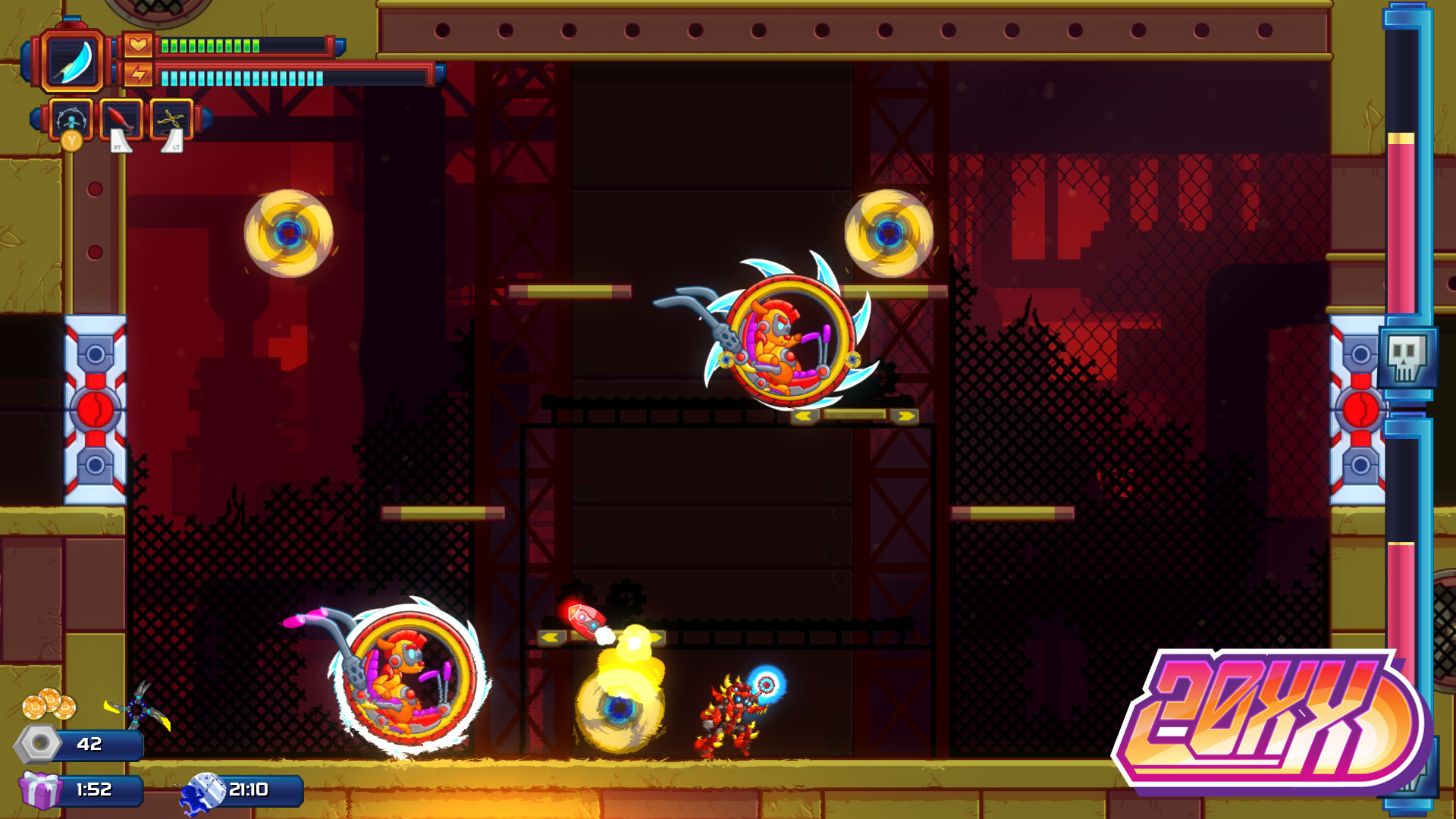
Generally speaking, the boss weapons themselves are all but useless. You’re basically given one of their attack shots, not the actual boss power as in Mega Man games. The shots basically means you may have an easier time landing a hit on a Master, but you won’t be dealing more damage on them.
Also, you only get the Masters shot, regardless of which character you are playing as. So Ace will receive the same powers as Nina, which reduces your choice of character to “Do I want a ranged (Nina) playthrough or do I want a more up close (Ace) playthrough”?
The basics of the game are fairly solid, but there is a severe lack of variety to help the game break through mediocrity. In a roguelike, variety is the spice of life and we just don’t have that variety here.
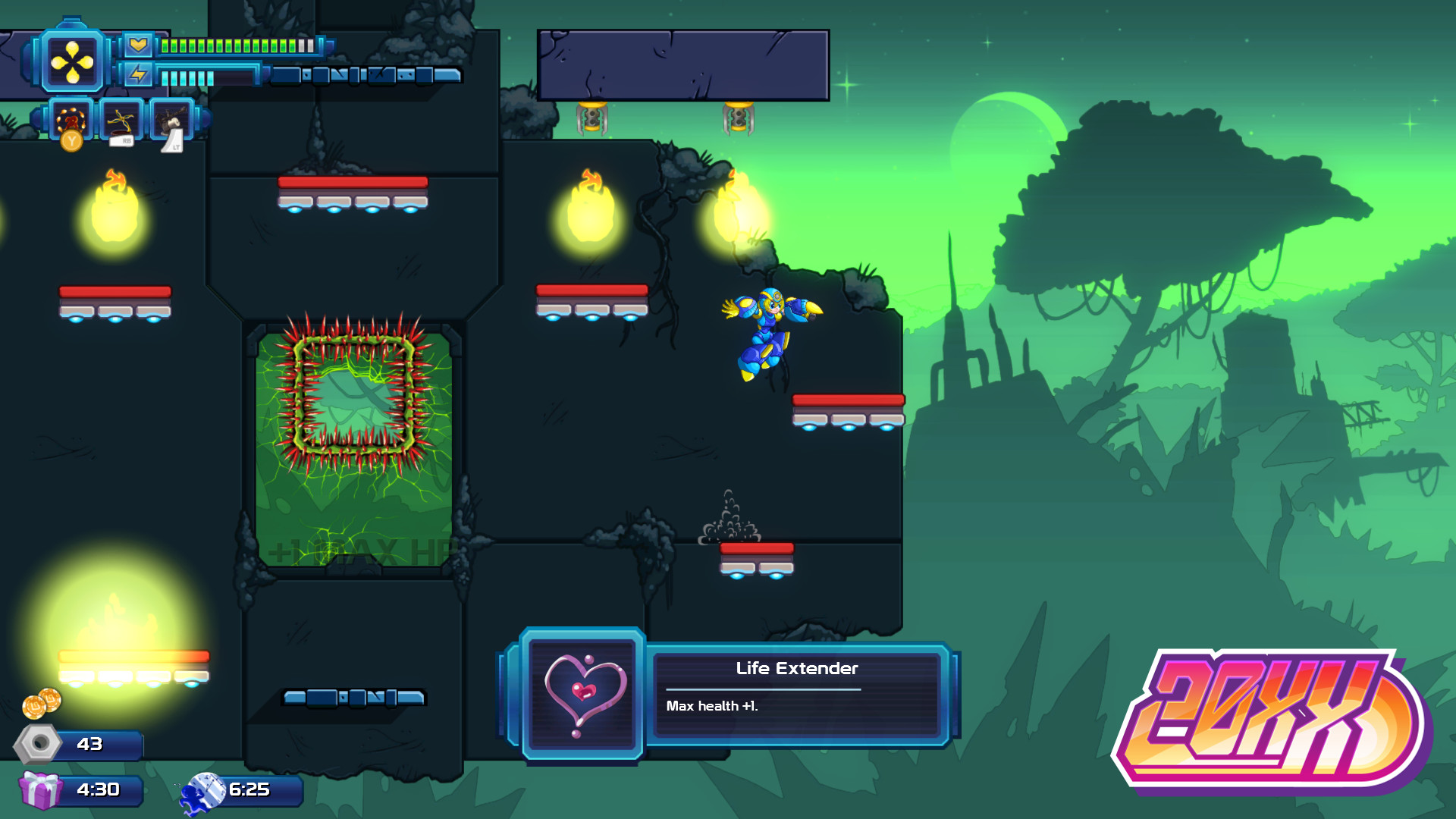
The story line is just as basic as the majority of the games 20XX copies itself upon. Here, the developers decided to take their cues from Mega Man and not the X series. Basically, the 8 Robot Masters have gone berserk and Nina and Ace must put them down.
The game even has its own versions of Light and Wily, who, instead of helping the player and giving feedback/advice, they ruthlessly mock you after each Master fight and then do so again should you happen to fail. They also happen to become the games true antagonists should you happen to make it through the 8 Robot Masters without dying.
But that is about it in terms of actual story, there really isn’t much here to drive a player to multiple playthroughs except for the fairly decent platforming.
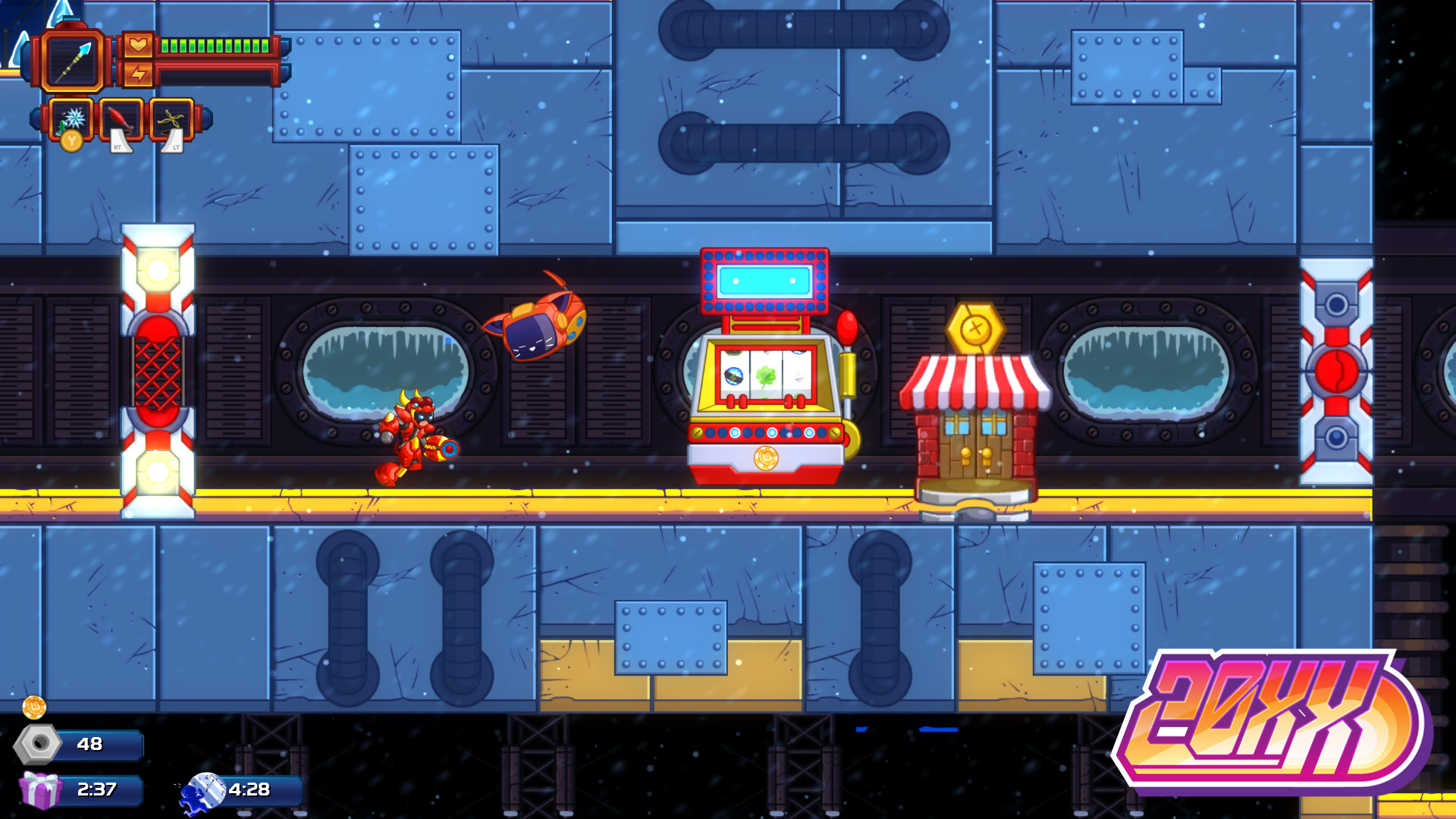
All in all, 20XX has some fairly solid gameplay mechanics that swing from passable to just plain unfair. It could do with a massive increase in enemy, level and power variety as well an overhaul on how the Robot Master weapons impact over all gameplay and fights with other masters. 20XX copied much, perhaps too much, from the Mega Man and X series, but didn’t copy the things that really make those series stand out as memorable and beloved series.
There is a good game here at the basics, but it requires more than a bit of work from the devs to really make the game shine and stand as a great platforming roguelike. Until that work happens, 20XX will stand as a fairly average game that can be fun in short bursts, but won’t hold most peoples attention for very long.
20XX was reviewed on Switch using a personally obtained copy. You can find additional information about Niche Gamer’s review/ethics policy here.